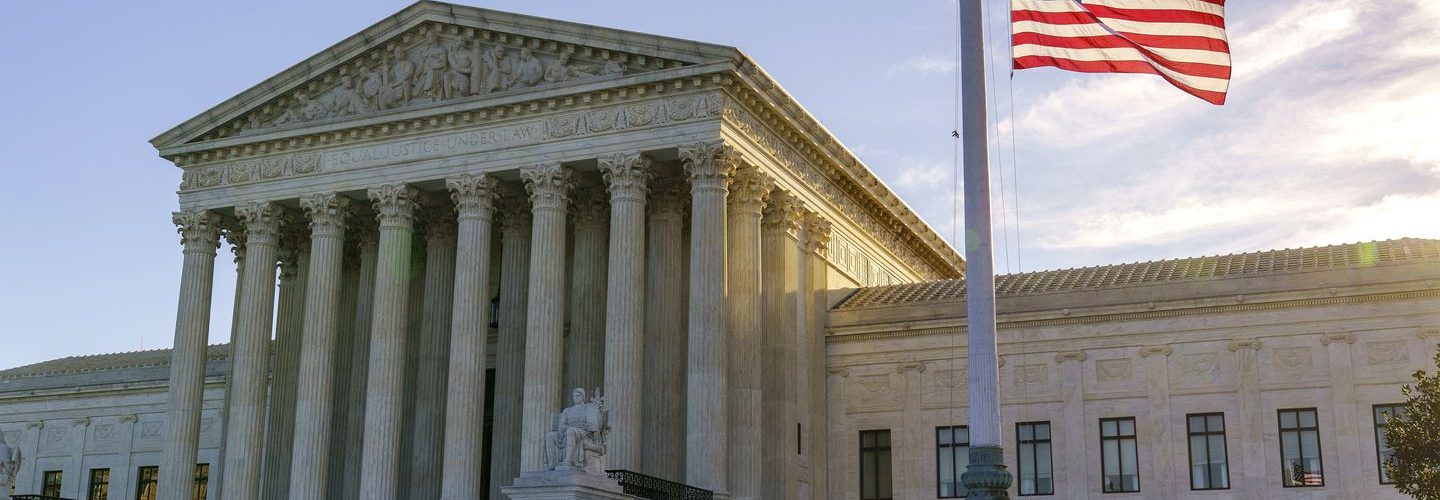Today’s courtrooms serve as a regular battleground between those who seek to ensure election integrity through laws establishing stricter voting processes and those who wish to repeal such laws due to their potential to limit ballot accessibility for minority groups.
The tension between election integrity and voting access were on display earlier this year when the United States Supreme Court considered the legality and constitutionality of two Arizona election laws in a case brought by the Democratic National Committee and certain party affiliates.
The Voting Rights Act, the Constitution, and Arizona’s election laws
The state Legislature in 2016 passed and Gov. Doug Ducey signed H.B. 2023, legislation barring so-called “ballot harvesting,” which the bill’s proponents claim occurs when anyone other than a United States Postal Service Postal Service worker or election official collects either voted or unvoted ballots.
Essentially, ballot harvesting occurs when a surrogate “harvests” or collects voters’ completed ballots to submit those ballots at the polls. While for many this might seem like a helpful gesture and a voting option that assists voters in the submission of their ballot, the Legislature believed ballot harvesting could have the potential to undermine the fairness and honesty of elections.
Also before the Supreme Court was a state law banning voters from casting ballots at voting precincts other than the ones assigned to them (A.R.S 16-122).
In Brnovich v. Democratic National Committee, the Court contemplated two important questions about the two Arizona election laws as they relate to Sec. 2 of the Voting Rights Act. Passed in 1965, the VRA is a landmark law that set certain standards for election regulation meant to enforce rights guaranteed by the Fourteenth Amendment, also known as the equal protection clause. Sec. 2 of the law prohibits voting practices that discriminate on the basis of race, color, or affiliation.
1. Does Arizona’s ballot harvesting law violate Sec. 2 and/or the Fifteenth Amendment, which ensures “The right of citizens of the United States to vote shall not be denied or abridged by the United States or by any State on account of race, color, or previous condition of servitude.” The DNC argued the law unduly burdened voters of minority groups and, as a result, was both a violation of Sec. 2 and the Fifteenth Amendment.
2. Does Arizona’s Out-of-Precinct policy violate Sec. 2 of the VRA? The DNC argued that “The state’s refusal to count ballots cast in the wrong precinct and its ballot-collection restriction had an adverse and disparate effect on the State’s American Indian, Hispanic, and African-American citizens in violation of §2 of the VRA.”
Additionally, the DNC alleged that the ballot-casting restriction was in violation of Section 2 of the VRA because it was “enacted with discriminatory intent.”
The Supreme Court in July ruled in a 6-3 decision that Arizona’s election laws were not in violation of Sec. 2 of the VRA, nor were they unconstitutional. The majority opinion was written by Justice Samuel Alito.
Ballot harvesting: A helpful gesture, or inviting corruption?
A few key components of H.B. 2023 directly target the behavior of ballot harvesters.
- Section B reads: “It is unlawful to offer or provide any consideration to acquire a voted or unvoted early ballot. A person who violates this subsection is guilty of a class 5 felony”
- Section C reads: “It is unlawful to receive or agree to receive any consideration in exchange for a voted or unvoted ballot. A person who violates this subsection is guilty of a class 5 felony”
“This bill ensures a secure chain of custody between the voter and the ballot box,” Gov. Ducey said when he signed the bill into law. “We join 18 other states in this common-sense approach to maintaining the integrity of our elections.”
Opponents of ballot harvesting worry that the practice might result in fraud or systematic disenfranchisement and could negatively affect any political party. Indeed, the results of the North Carolina 9th Congressional District race in 2018 were overturned because a Republican political operative collected hundreds of mail-in ballots from disproportionately Democratic neighborhoods and never brought them to a polling place. The election’s margin was slim, and the outstanding ballots had the potential to change the election’s result.
The Alito opinion
Alito’s opinion acknowledges the history of discriminatory voter restrictions such as poll taxes, literary tests, property qualifications, as well as “White Primaries” and “grandfather clauses.”
Alito uses the aforementioned examples of discriminatory election regulation and his comprehensive understanding of Sec. 2 of the VRA as a baseline from which to judge the current Arizona statutes.
Alito argues that the plaintiffs failed to prove either of the statutes’ “disparate impact on the opportunities of minority voters to[vote]” as well as how the policy encouraged unlawful voting procedure by minority voters any more than their non-minority counterparts.
Alito explains how Sec. 2 of the VRA specifically requires a “consideration of the totality of circumstances” when being applied to election regulations. “Thus any circumstance that has a logical bearing on whether voting is equally open and affords equal opportunity may be considered,” he wrote. He proposes five factors that could be used as a legal test for judging such applications of Sec. 2 in the future.
Alito’s examination of the “totality of circumstances” surrounding Arizona’s election regulation offers a defense for an election law aimed at ensuring election integrity.
The Alito opinion, however, is not a consensus shared by all members of the court, and it is certainly not an opinion shared by the entire public. Still, Alito’s majority opinion will likely influence future Supreme Court decisions concerning how Sec. 2 of the VRA should be applied to election regulation.
















Add comment